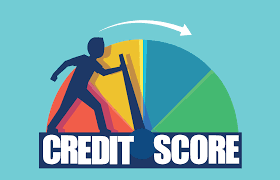
By alphacardprocess February 15, 2022
The credit score is a three-digit number that has become an increasingly important piece of personal financial information for millions of Americans. A good credit score can help you qualify for a loan, whereas a poor one could prevent you from getting approved for a line of credit or a mortgage. As such, it’s smart to know what your credit score is and to try to improve it.
Credit scores range from 300-850, with the best score being a 850 and the worst score typically being a 300. According to Credit Karma, an estimated 26 percent of Americans have a credit score in the 549 to 600 range (considered “fair”), while only about 9 percent of people have a score in the very good or excellent range (621 to 850).
A credit score determines what interest rate you’ll be offered when applying for a loan. The better your credit score, the lower your interest rate will likely be. A high credit score can also mean that you’re able to qualify for a larger loan. For example, a good credit score may qualify you for a $100,000 mortgage, while a poor credit score might limit you to a $50,000 loan.
There are several different credit reporting agencies that calculate your FICO score—a closely-watched number that’s used by lenders when making decisions about your loan application. The three largest companies are Equifax, TransUnion and Experian. Each has its own formula for calculating credit scores, but the score range is the same, no matter which agency is used to determine it.
While there are many factors that go into determining your credit score, FICO (formerly Fannie Mae) says that 35 percent of your score is based on the difference between the balances owed on your accounts and the credit limits. Another 30 percent is determined by how long you’ve had credit, 10 percent depends on how recent any reported late payments were and 15 percent is based on new credit inquiries. The final 20 percent of your score is based on mix (e.g. whether or not you have both installment and revolving accounts).
Because of the way it’s calculated, you can improve your score by paying down debt and opening new credit accounts. So, if you’re planning to apply for a major loan or line of credit soon, be sure to do so at least one or two months before applying for the loan. This will ensure that any new credit accounts are factored into your score by the time you apply for the loan.
You can also improve your overall credit health by checking your credit report regularly and responding to any errors or discrepancies that show up. For example, if an account is listed as delinquent when it shouldn’t be, dispute that information with the credit reporting agency.
If you have no credit, or your credit is bad, don’t worry. You can improve your score by taking advantage of any available credit opportunities—like an employer-sponsored credit card that will help establish a history with the reporting agency. If you’re having trouble getting approved for new accounts, consider requesting a secured credit card—which requires a cash deposit, but will help build your history.
Each consumer’s financial profile is different, so it’s important to take time to understand what can affect your credit score and how you can improve it—not only for the sake of your wallet, but also for peace of mind.
